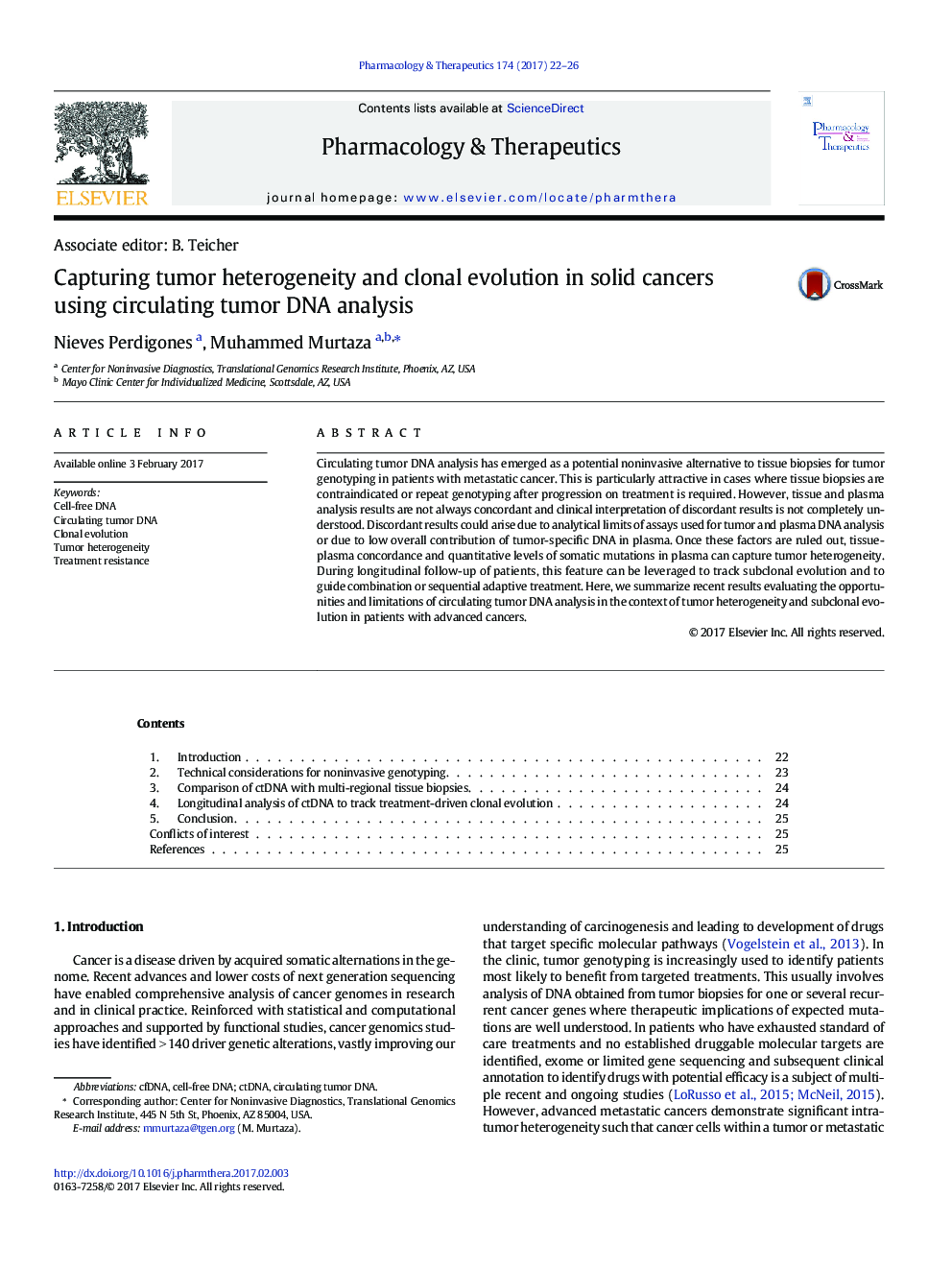| Article ID | Journal | Published Year | Pages | File Type |
|---|---|---|---|---|
| 5557735 | Pharmacology & Therapeutics | 2017 | 5 Pages |
Circulating tumor DNA analysis has emerged as a potential noninvasive alternative to tissue biopsies for tumor genotyping in patients with metastatic cancer. This is particularly attractive in cases where tissue biopsies are contraindicated or repeat genotyping after progression on treatment is required. However, tissue and plasma analysis results are not always concordant and clinical interpretation of discordant results is not completely understood. Discordant results could arise due to analytical limits of assays used for tumor and plasma DNA analysis or due to low overall contribution of tumor-specific DNA in plasma. Once these factors are ruled out, tissue-plasma concordance and quantitative levels of somatic mutations in plasma can capture tumor heterogeneity. During longitudinal follow-up of patients, this feature can be leveraged to track subclonal evolution and to guide combination or sequential adaptive treatment. Here, we summarize recent results evaluating the opportunities and limitations of circulating tumor DNA analysis in the context of tumor heterogeneity and subclonal evolution in patients with advanced cancers.
